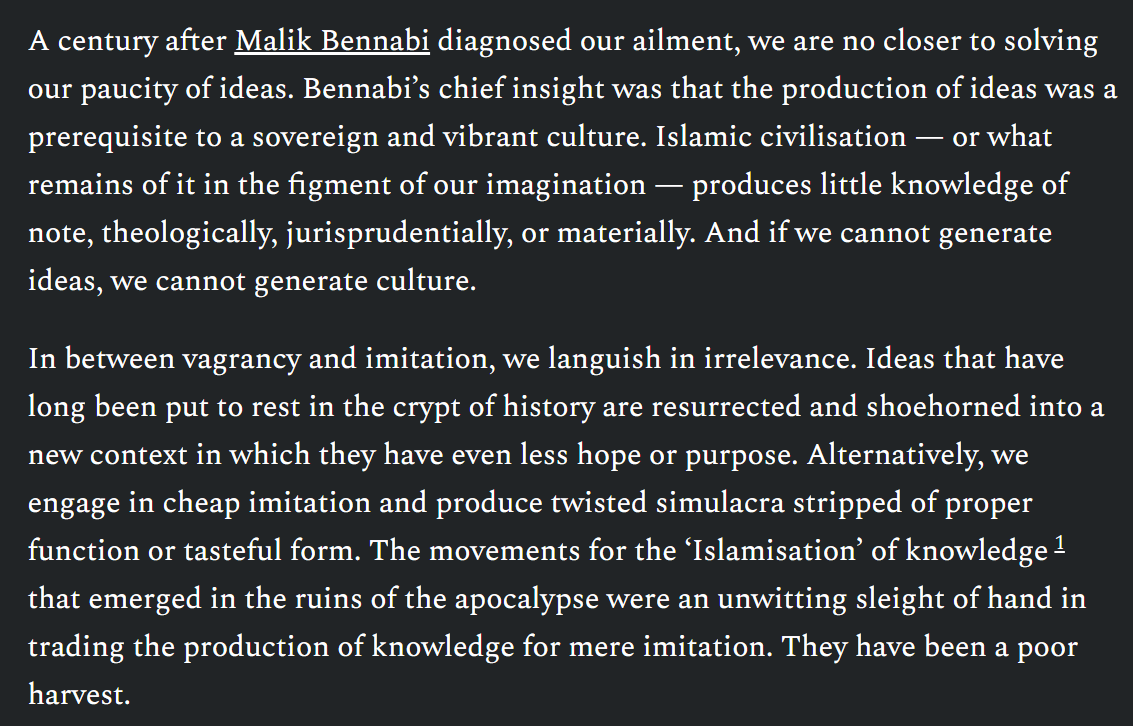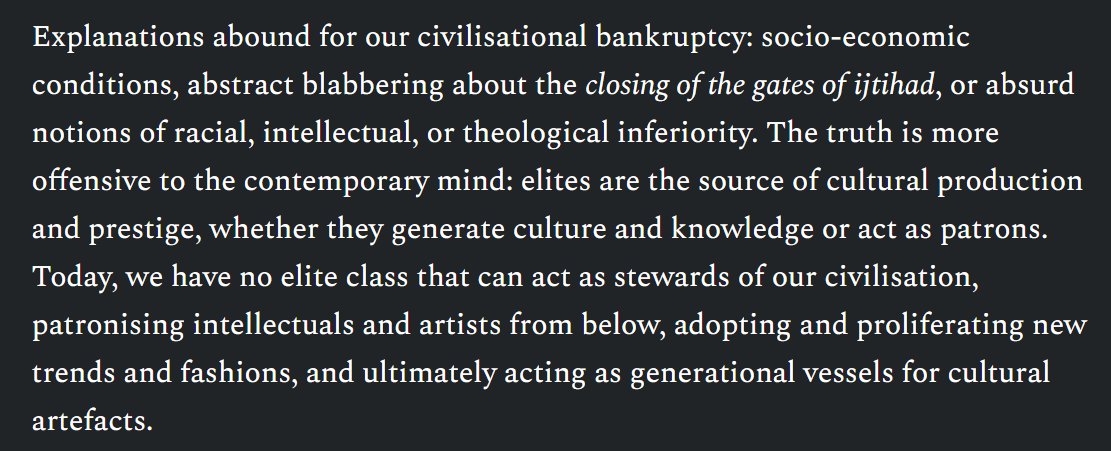Good thread, too bad Cedric tweets in French. The mass return of Sunni scholarship to Syria represents Al-Shara's real test as an emerging politician: if he wants to govern Syria, he has to build the biggest tent, fast. This means eg intra-Sunni alliances btwn Salafis and Sufis.
https://twitter.com/CdricLabrousse/status/1875752714933538932
Syria's scholars trend towards sufi/ikhwani backgrounds, inherently at odds with HTS' style of salafism. That doesn't mean they can't coexist or cooperate. It just means they are not the same thing, and that will require concessions, especially by Al-Shara.
If his current track record is anything to go by, Al-Shara is prepared to extend the tent and these scholars, if they are indeed wise, will get what concessions they want without causing a ruckus and then rally the people to supporting the new state.
This will be Al-Shara's most important domestic political achievement over the coming months and years, and arguably, will provide him with the greatest legitimacy and state-unifying power.
To make it clear: an alliance between Al-Shara and Syria's prominent Sunni scholarship means no Sunni faction in the country will try and bear arms against HTS and will fold into HTS-led state-building efforts.
Dr Ratib Al-Nabulsi, one of Syria’s famous scholars in exile who just returned this week to Syria, meeting with Al-Shara today. The big tent building already started.
https://twitter.com/qasemqt/status/1875916445147971781
I’d expect a visit by Usama Al-Rifai soon, who was appointed ‘Grand Mufti’ by the Syrian opposition Islamic council in Istanbul back in 2021 when Assad abolished the position in the state. It will be interesting to see if Al-Shara doesn’t contest that appointment.
Just to be clear: Al-Shara probably sees himself above such issues like the sufi-salafi divide because he is ‘Syria’s statesman.’ The expansion of the tent will massively benefit Al-Shara’s position, as salafi-jihadi hardliners become very marginal.
I have no doubts that the trad Syrian Sunni establishment and Al-Shara will establish a working relationship. The former will also have to compromise on and accept the existence of salafi preachers and participation in the courts, etc, considering the latter did the liberating.
Al-Nabulsi on his return to Damascus went to his mosque which he was forced to abandon when he went into exile and couldn’t speak without crying:
https://twitter.com/anasaldogheim/status/1874571845065957516
Al-Nabulsi also met the female students of his sharia college in Damascus. The one thing Assad could never do was eliminate the influence of the Sunni ulema even in their exile. A lot of these girls probably weren’t alive when the revolution began.
https://twitter.com/baraa_abdul/status/1874424674182136214
Usama Al-Rifai’s appearance in the Umayyad mosque of Damascus under protection from HTS soldiers also shows coordination occurring behind the scenes:
https://twitter.com/revtamam/status/1875587902652215434
• • •
Missing some Tweet in this thread? You can try to
force a refresh







